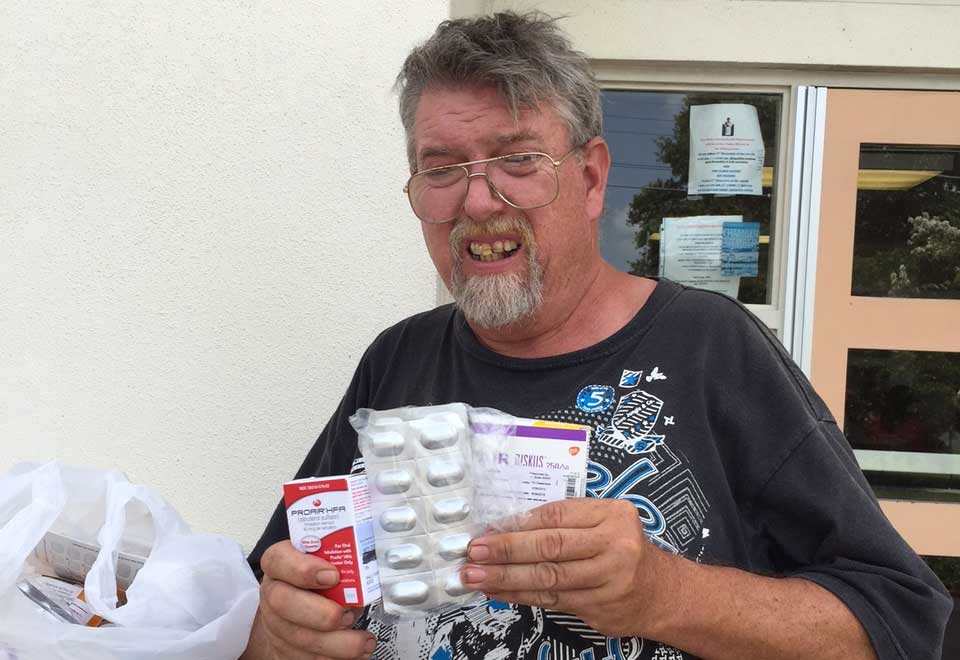
LAKELAND – A litany of physical ailments keeps Jon Helwig from working a full-time job and contributes, in large part, to his being homeless for several years.
Along with diabetes, he has chronic obstructive lung disease, arthritis, allergies, anxiety, depression and past heart issues.
He’s applied for disability and hopes it gets approved, but home, right now, is the woods for Helwig, 52, and the woman he said he hopes to marry if they can ever afford it.
Once a yard dog driver moving trailers and boxes — “my field of expertise was fruit,” Helwig said — he developed a hernia and was out of work. During the time he had insurance, he could see private doctors, he said, but that ended.
He used the emergency department sporadically, as he needed it, he said, but, when he developed diabetes, sought ongoing primary care.
He’s found it at Talbot House Ministries’ Good Samaritan Clinic, which treats those who are homeless and low-income people who have a set address.
Leaving Good Samaritan earlier this year, the curly-haired man who moved to central Polk County with his family as a teenager carried a plastic sack filled with medications.
His medicines, supplied through Good Samaritan and drug company programs, include metformin for his type-2 diabetes, Singulair for asthma, Spiriva for COPD, pain medicines, and some pills for anxiety and depression.
“I use my inhaler a lot during the heat of summer,” he said.
Finding a clinic that would treat him has helped him greatly, he said.
“I praise this clinic right here,” he said. “Dr. Judy (nurse practitioner Judy Snow) is a good doctor. There’s not many I’d be comfortable with.”
His struggle with being homeless has gone on for several years, he said, interspersed with being in a drug rehabilitation facility for cocaine use, or living with friends or in temporary housing.
He’s had different jobs, he said, including once delivering the newspaper.
After being homeless in 2008 or 2009, he said, he found temp work, although without insurance, and could stay in a motel. About 2011, he ran out of jobs.
“All the temp jobs I can’t work for long because I fall out going to the hospital for COPD,” said Helwig, who said he’s grateful to churches that supplied tents, blankets and sleeping bags.
He carries his cell phone and laptop with him to keep them from being stolen.
He’d like a home he could call his own again someday, he said, but for now would rather stay in the woods than in a motel.
“You can get stuck there and never get any farther,” he said of motels. “Everything you have goes to them.”